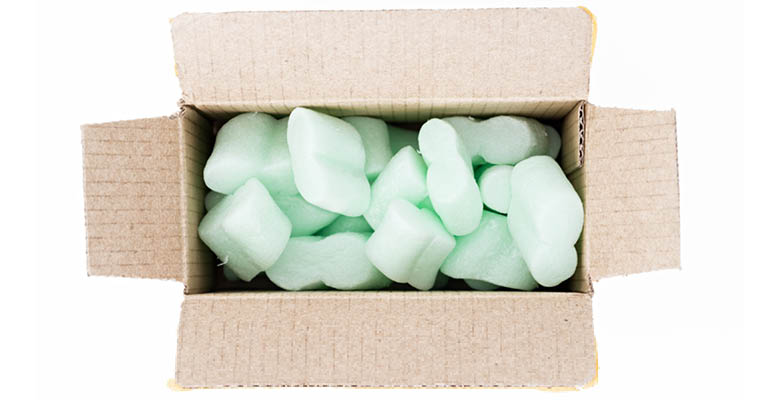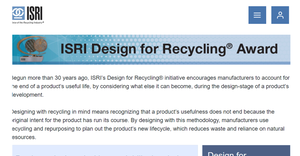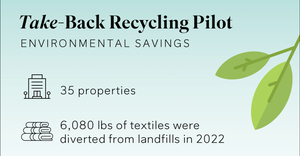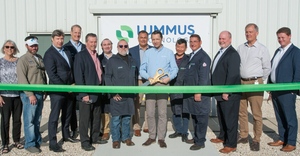Foam Cycle’s self-contained densifier stores and processes the material, reducing its volume by 95 percent.

New Jersey’s Sussex County has processed more than 4,000 pounds of expanded polystyrene (EPS) foam since October 2016, saving landfill space and securing a local buyer for the processed material.
The Sussex County Municipal Utilities Authority (SCMUA) launched this EPS recovery initiative with assistance from Augusta, N.J.-based Foam Cycle. The company produces the densifier that processes the bulky material, trained authority staff on its use and linked the organization to the end user, a picture frame manufacturer.
Currently there are only 30 EPS curbside collection programs in the U.S., according to the EPS Industry Alliance. But setups like the one at Sussex County’s recycling drop off center at its landfill could be a way to collect and process more material. And this focus makes sense, believe industry stakeholders. Some states and municipalities are banning EPS either from landfill or from being used at all, while businesses are finding uses for the recycled material, if they can get ahold of it.
“Our goal is to get municipalities, schools, and hospitals to purchase our system to densify foam while reducing carbon footprint and finding another way to get value from their solid waste,” says Beth Coleman, sales coordinator for Foam Cycle.
The key is achieving economy of scale, which the EPS Industry Alliance believes can be facilitated through commercial recycling, now done only by a few businesses, such as Walmart and pharmaceutical companies. Subaru has an internal reuse program, as EPS can be used over 10 times to ship motor parts.
But there are challenges to building infrastructure.
For one, says Betsy Bowers, EPS Industry Alliance executive director, “There is no magic formula for EPS recycling as there are widespread market applications [building, construction and packaging],” Bowers says. “Big-box retailers also have their own varied distribution and collection systems. So you have to look at how each is set up and come up with a solution.”
Foam Cycle’s self-contained densifier stores and processes the material, reducing its volume by 95 percent. The company provides bins, signage and reusable polybags that go into the collection bin.
Recyclers pull the polybags from the unit and foam is fed into the densifier, which grinds and melts it. It’s then molded into cubes, palletized and delivered to or picked up by processors.
“We would like to be part of the initiative to use green innovation to reduce polystyrene from landfills, so we are involved all the way up to the repurposing by connecting recyclers with end use markets,” says Coleman.
What attracted SCMUA was that this was a way to save landfill space and there’s an added bonus that it can sell what has historically been a burden.
“From our view the recycling of EPS material was always hard. There was no market for end products, but with this equipment there is. And we have been able to work within our existing facility using our existing personnel to divert another material,” says James Sparnon SCMUA superintendent of solid waste facilities. Its job is to collect and process the foam, and soon it will add shipping to its role.
From an economic perspective Sparnon estimates the authority is breaking even while also addressing a mounting environmental problem.
Seattle has prohibited the sale of meat and fish in foam containers. San Francisco’s proposed legislation goes further, calling for bans on polystyrene beach toys, dock floats, mooring buoys, and packaging products. Meanwhile New York banned foam, only to have that ban overturned by courts.
SCMUA is continuing to assess the Foam Cycle system, assuming it will learn more as it gets through a full weather cycle since the weather can affect participation. Plus it wants to ensure material stays dry through rainy and snowy seasons, and has worked to address this issue with protective drop off containers and canvas bags.
Meanwhile, EPS Alliance, which recognized Foam Cycle with an Excellence in Recycling award, is looking at grant opportunities to jump start recovery, hoping for industry support with in-kind contributions.
“We are looking at Foam Cycle’s model and trying to duplicate it in other areas,” says Bowers.
About the Author(s)
You May Also Like




